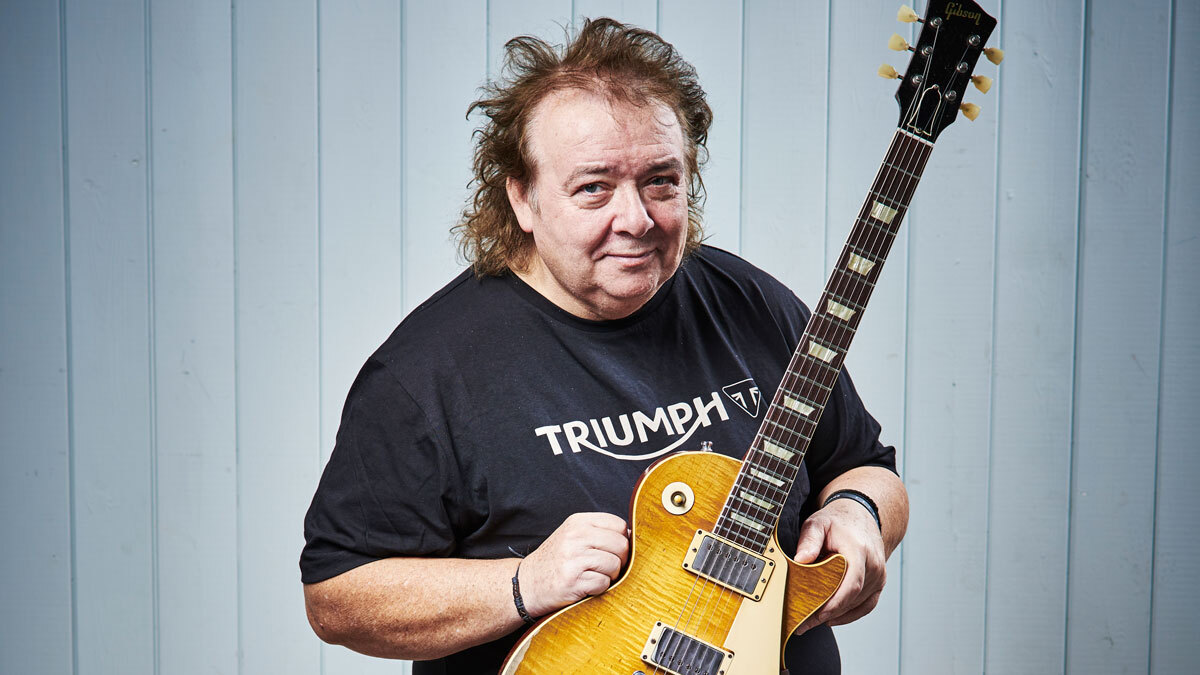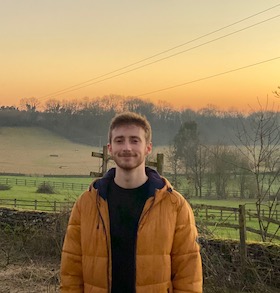
Bernie Marsden, founding Whitesnake guitarist and one of the finest British players to ever pick up an electric guitar, has passed away.
The news was confirmed by Marsden’s family via a statement issued by Bernie’s record label, Conquest Music.
“On behalf of his family, it is with deep sadness we announce the death of Bernie Marsden,” the statement read. “Bernie died peacefully on Thursday evening with his wife, Fran, and daughters, Charlotte and Olivia, by his side.
“Bernie never lost his passion for music, writing and recording new songs until the end.”
Famed for a highly successful four-year stint with Whitesnake that spanned 1978 to 1982, Marsden is widely regarded as one of the most influential blues and rock British guitarists of his generation, contributing to the band’s debut EP, five studio albums and a live record.
During his defining time with the band, Marsden co-write some of Whitesnake’s most enduringly popular hits, including 1982’s Here I Go Again. With the David Coverdale-fronted outfit, his exceptional songwriting chops, soulful touch, captivating stage presence and expressive approach took center stage.
A post shared by Bernie Marsden 😎🎸❤️ (@berniemarsden)
A photo posted by on
But Marsden and his celebrated playing style were already making waves before the Whitesnake days. Born in 1951 in Buckingham, England, Bernie’s professional career began in 1972 with stints in bands such as Paice Ashton Lord, UFO and Glenn Cornick’s Wild Turkey.
Get The Pick Newsletter
All the latest guitar news, interviews, lessons, reviews, deals and more, direct to your inbox!
Initially inspired by the likes of Hank Marvin and Eric Clapton – whose music introduced him to B.B. King, Jeff Beck, Jimi Hendrix, Mick Taylor and Peter Green – Marsden drew from a diverse pool of sonic inspiration from which he developed his own sound.
“I loved Hank Marvin in The Shadows as a kid, but Eric Clapton was the first guitar player I really adored, because I was old enough to relate to it,” he once told Classic Rock of his influences.
This soon-to-be-iconic Marsden sound was introduced to a global audience when Marsden co-founded Whitesnake in 1978 with David Coverdale. The pair would work together for Snakebite (1978), Trouble (1978), Lovehunter (1979), Ready & Willing (1980) and Come An’ Get It (1981).
His days with Whitesnake eventually came to an end due to “bad management”, with Marsden recently reflecting, “I only really started to see royalties after taking the company to court many years later.
“But during the time I was in Whitesnake all I ever earned was a small monthly salary,” he continued. “It didn’t matter if we did ten gigs or twenty-nine gigs, the money was the same. And we all got paid different amounts, which we weren’t aware of back then.”
After Whitesnake, Marsden formed and operated in a number of other influential groups, including Alaska, MGM and The Moody Marsden Band, and continued to build his solo repertoire, which started during his Whitesnake days with 1979’s And About Time Too!
But it is his Whitesnake work for which he was most widely celebrated, which he curated using his trusty 1959 Gibson Les Paul Standard, affectionately known as The Beast. Indeed, The Beast is up there with Peter Green’s Greeny among the guitar world’s most iconic ’Bursts.
“Every Whitesnake record I did has that guitar on it – I wrote all those songs on that guitar,” Marsden once said of The Beast, which he bought for £500. “I bought it in ’74 and it was there with me literally until I retired it.
“To me, it’s such a great guitar. But it’s no better than David Gilmour’s favorite guitar, or Mick Ralphs’ favorite guitar, because it’s all down to us; it’s a personal thing.”
The Beast was put up for sale for a brief period of time earlier this year as part of a mammoth Marsden guitar auction, though Marsden ultimately U-turned on his decision to part ways with his prized possession.
As a player, Marsden was revered among fans and his peers alike. During his career, he was honored with signature gear from some of guitar’s biggest brands, including Marshall, PRS and Gibson, and worked with the likes of Paul McCartney, Gary Moore and Joe Bonamassa, to name just a few.
The guitarist’s star-studded list of collaborators also includes names such as Robert Plant, Paul Weller, Jon Lord, Ringo Starr, Rory Gallagher, Jack Bruce and Warren Haynes.

Marsden worked closely with the UK’s Guitarist magazine on many occasions. In tribute to Bernie, Guitarist’s Editor-in-Chief Jamie Dickson wrote, “The sad news of Bernie's death was a real shock as we'd only been speaking a couple of days before. He was as friendly and frank as ever, explaining to me why he'd decided to hold his famous 1959 Les Paul, better know as The Beast, back from a recent sale of his guitars. He told me what a relief it had been when his family persuaded him to keep it just a little longer. That decision seems all the more fitting and poignant today.”
Bernie was also a close friend of Peter Green, with whom he jammed right up until the former Fleetwood Mac guitarist’s death in 2020. Around the same time, Marsden was also writing new music with Joe Bonamassa.
All I’ve ever tried to do is play a show with as much honesty as I can, because without the people who put their hands in their pockets and come to gigs, there’s nothing left
Bernie Marsden
“I think if you’ve got the talent, luck will fall your way,” Marsden once said to Classic Rock. “Opening for Cozy Powell with Wild Turkey was serendipity, but that didn’t get me the gig with Paice Ashton Lord. And did I get that gig because I was the only guitarist who didn’t play Smoke on the Water at the audition? Or because all the other players tried to be Ritchie Blackmore? I’ll never know.
“All I’ve ever tried to do is play a show with as much honesty as I can, because without the people who put their hands in their pockets and come to gigs, there’s nothing left.”
In his later years, Marsden hosted various guitar clinics, and continued to write and release music. Two albums in 2021 (Kings and Chess) were followed by 2022’s Trios, all of which formed part of Bernie’s Inspiration Series of LPs.
Last year, Marsden suffered health issues when he underwent surgery and became ill with acute dehydration. The setback prevented Marsden from playing at Firestorm Rock Festival in Manchester, England, much to the guitarist’s own disappointment – a true testament to Bernie’s passion for playing the guitar.
“I suppose I am proud of what has gone on,” reads a quote on Marsden’s official website. “After all I only ever wanted to play the guitar for a living.”

Matt is the GuitarWorld.com News Editor. He has a Masters in the guitar, a degree in history, and has spent the last 16 years playing everything from blues and jazz to indie and pop. When he’s not combining his passion for writing and music during his day job, Matt records for a number of UK-based bands and songwriters as a session musician.
“His songs are timeless, you can’t tell if they were written in the 1400s or now”: Michael Hurley, guitarist and singer/songwriter known as the ‘Godfather of freak folk,’ dies at 83
“The future is pretty bright”: Norman's Rare Guitars has unearthed another future blues great – and the 15-year-old guitar star has already jammed with Michael Lemmo













